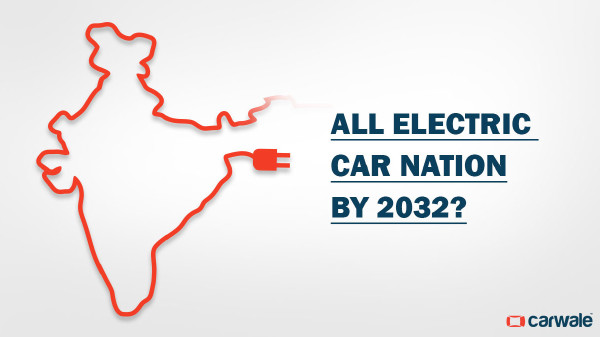Can India become an all electric car nation?
India has announced its plan to become an all-electric vehicle market by 2030 – a tectonic shift in the making especially, considering the current disarray of the electric vehicle market. While a large section of critics have deemed it overtly ambitious, there is a fair chance of achieving it and here is how it can be done.
First up, let us take a look at the ongoing developments. Apart from the general apathy towards electric cars fuelled by lack of knowledge or interest, there are a few who are working ahead of time. For example, under the FAME initiative, the Government of India has stopped offering sops for mild-hybrids as well as plug-in hybrids, egging car makers to go all-out electric straightaway.
Chetan Maini, the doyen of electric vehicles in India, has already entered into a partnership with Sun New Energy systems to develop and test smart battery packs over the next 18 months. The idea behind this exercise is to create a basic system where battery packs can be bought and replaced almost as easily as say car tyres. These cassette-type battery packs will be developed as custom kits for all car manufacturers which will allow a unified design that can be regulated and implemented systematically.
Docking stations which will offer as well as replace batteries will be setup across the country similar to gas stations which will make electric vehicle usage seamless and the technology accessible across the geography. NITI Aayog, with help of Colorado-based Rocky Mountain Institute, hasrecommended a similar unified metropolitan planning authority and creating standardized swappable batteries for two- and three-wheelers to electrify these important vehicle segments as quickly as possible through a pay-per-use business model and an integrated payment, tracking, and smart-charging system.
India needs a manufacturer consortium that will build and sell batteries, common components and platforms, something that the Society of Indian Manufacturers (SIAM) should ideally spearhead. Mahindra Electric, the EV subsidiary of the Indian car maker, Mahindra and Mahindra, is the only manufacturer that offers all-electric cars in India. Tata Motors has shown interest in the electric space and the announcement of the new plan should expedite their process. Global car makers like Hyundai, Chevrolet and Honda among others have electric cars in their global portfolio. In case they see a positive development in EV infrastructure, it will not take them long to bring their EVs to India.
The electrification of the fleet also works in favour of India’s target of halving their oil imports by 2030, a step that will try to stem the consumptive nature of our economy. In accordance with the Paris Agreement, GOI has plans to generate over 175GW of electricity from renewable sources. Also, as of now, power-plants in India are not running at their installed capacity owing to paucity of demand. Which means, India has the capacity to cater to the increased demand of electricity in future.
After the jump to BS-VI from BS-IV in emission norms, car manufacturers are trying to adopt a gradual approach which will help them transition from fossil-fuels to hybrids to EVs. But, if the government of India stays persistent with its plan and positively aids the creation of EV infrastructure in consonance with car makers, there is a chance of India leapfrogging to international levels, following developed countries like Germany in terms of mobility. As car owners, we may have to shell out a little more over the next decade in terms of taxes on fuels or car purchases and this money may be used to fund the infrastructure development.
The challenges are many. On the one hand installed capacity of power plants is much more than what is being consumed as of now. Yet, the other reality is that there is still a sizeable population in India which does not have access to electricity. Once India reaches 100 per cent electrification, there is no guessing as to how the expected consumption patterns might change. Also, in India, a major share of the electricity produced comes from thermal plants, which is not exactly clean. So until the government mainstreams electricity production using renewable sources like wind and solar, their plan for electrification of the entire vehicular fleet might backfire. Add to that the infrastructure needed to set up charging ports in existing infrastructure to cater to such a huge volume of electric vehicles and we are looking at a tough task ahead.
With all these challenges and many more that will crop up over time, the plan to go for all-electric mobility by 2032 seems a little too far-fetched, especially given the traditional notoriety of the Indian government in implementing policy decisions. But then, this is at least the first step in the right direction, the direction in which India has to eventually head one way or another.
Photos
|
|
|











